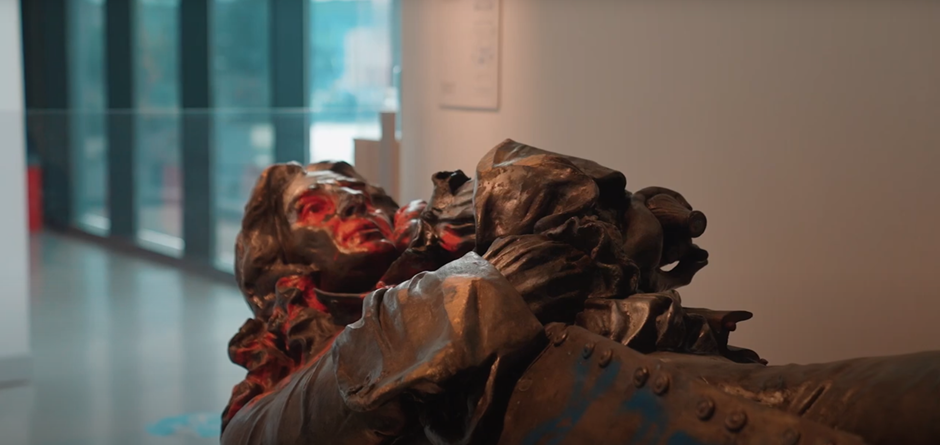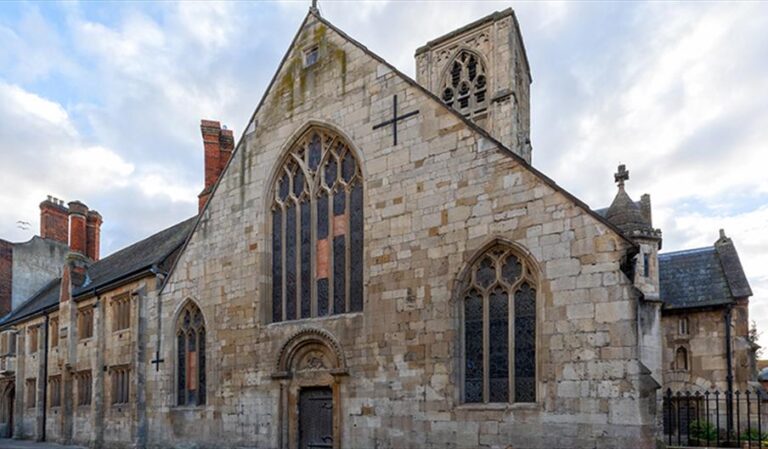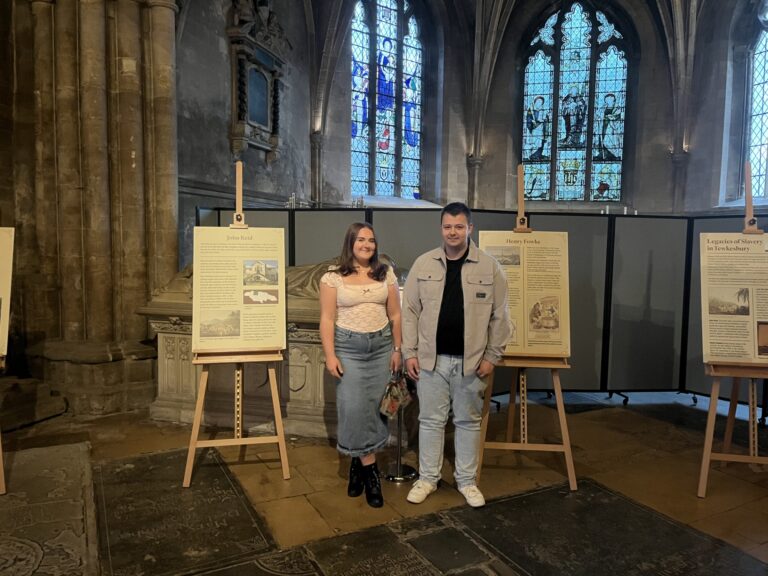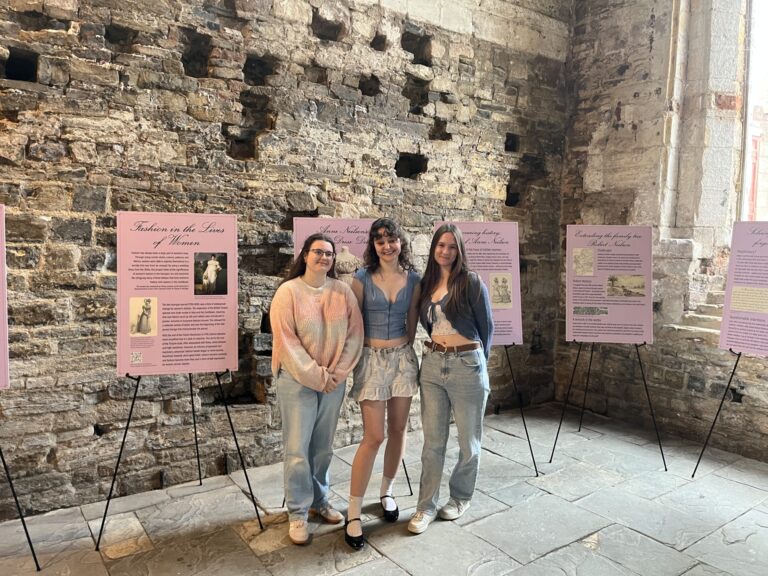| CC4HH
Legacies of Slavery in Gloucester
Dr Christian O’Connell has been working in partnership with Gloucester City Council’s commission on race relations on a project examining Gloucester’s heritage landscape and its connections to transatlantic slavery. It brings together various local institutions, heritage organizations and community groups to create greater public engagement with this history and foster a more sensitive appreciation of the past. To this end, the project has involved a number of collaborative initiatives to engage the public on various aspects of this history, and support other associated projects.
Introduction and aims
The project was developed in response to the Black Lives Matter protests of 2020 that swept across the United States and Europe following the murder of George Floyd in Minneapolis earlier in May. While these protests began in the United States, they quickly spread across the globe. In Britain, the protests raised significant questions about the way we discuss, remember and often forget the history of the transatlantic slave trade.
A number of clashes emerged over legacies of slavery in Britain, particularly the existence of monuments to slave traders such as Edward Colston in Bristol, which was removed by a group of protestors in June 2020. This debate over the way slavery is memorialized in the built environment extended to monuments of other historic figures such as the imperialist Cecil Rhodes, Robert Baden-Powell and even Winston Churchill.
For many people these monuments represent long-standing injustice and the way that racism has played a significant but underacknowledged role in our history. As a result, over 70 memorials have either been renamed or taken down in Britain following the events of 2020.
Rather than focusing on issues of removal, the review of monuments in Gloucester is an opportunity to utilize the heritage landscape of the city to promote a better understanding of this neglected history. As well as examining the statues of monarchs like Charles II and Queen Anne, the review has been examining the memorialization of other key figures celebrated in the city, as well as people who played a large role in Gloucester industrial development. A copy of the review report was published in January 2021. Some the central questions of the ongoing project include:
- What are the links between the city and the slave trade?
- How did the development of slavery as well as abolition affect the city?
- What links are still traceable?
- How are these stories reflected in the city?
- To what extent are they hidden, and why?
- In what ways can acknowledging this history contribute to community cohesion going forward?
The City Council accepted the recommendations of the report in full, and so the project has been in an ‘implementation’ phase since 2022, which involves the following:
- undertaking a broader review of Gloucester’s colonial or imperial legacies and links.
- developing specific educational resources that can be used locally.
- encouraging public engagement on the history of the City and its connections to the Transatlantic Slave Trade
- collaborate with heritage organizations and museums in the city to engage with this history.
- looking for opportunities to celebrate Gloucester’s multicultural history.
Gloucester and the Slave TRade: A Documentary
As part of the research phase of the project, the team produced a documentary on the initial results of the review in 2021. It begins to tell the stories that connect Gloucester to the broader history of transatlantic slavery and the British Empire. The film features members of the various organizations that contributed to the project. It was first screened at the Gloucester History Festival in 2021, and has been used by a number of local organisations and schools. At trailer is available here:
If you are interested in screening the film, please contact Dr Christian O’Connell [email protected]
initiatives, events, and public engagement
We are working with Gloucester City Council, and partners which include Gloucester Cathedral, the Soldiers of Gloucestershire Museum, and the Museum of Gloucester on a number of initiatives to explore the city’s connections to this history, as well as engage different communities in Gloucester in discussions about the city’s heritage. Some of the main events and achievements are listed here:
The project supported the Soldiers of Gloucestershire Museum in their re-examination of their collections as part their 360-degree history initiative. We collaborated in the production of an exhibition in 2023 on The Life of Ukasaw Gronniosaw (James Albert), a formerly enslaved African who served in the 28th Regiment of Foot in the Seven Years’ War.


A 1-day conference ‘Britain’s Contested Pasts’ held on 26th June 2024 at the University of Gloucestershire which brought together academics, heritage organisations and town planners to share practice and experiences of engaging communities in dealing with this history. Details can be seen here.
A permanent exhibition on ‘The Life and Legacies of George Whitefield’ at St Mary’s de Crypt church will be launched at the Gloucester History Festival in September 2025. This follows the update to the blue plaque on Whitefield to reflect his connections to slavery in the American colonies (see below), and the Museum of Gloucester’s temporary exhibition in March 2023 entitled ‘Tradition and Legacy: a Spotlight on George Whitefield.’


Gloucester Cathedral and ‘Connected Lives:’ this is the Cathedral’s research project which aims to shed light on individuals who are memorialised within the fabric of the Cathedral, including their connections to the transatlantic slave trade, Indian colonialism, interfaith relations, racial injustice and any legacies that may still endure. It invites individuals from the city’s diverse communities to form a Contested Heritage Panel to contribute to the initiative. The panel actively seeks to effect positive change by providing a safe space to engage in discussion on findings from the ongoing project, respecting any sensitivities the research presents. So far, the project has researched six individuals, but the research is continuing and, as more is understood, other biographies may be changed or updated.
media and references to the project
The project and its associated events and initiatives have featured frequently in the media, and have also helped to inspire artists and other organizations working on related issues:
- ‘Gloucester and the Slave Trade: a documentary’ screening, 9 September 2021, Gloucester History Festival
- ‘Gloucester’s links to slave trade outlined in new report’ (BBC, January 2022)
- ‘Gloucester families who helped end slavery to be recognized’ (BBC January 2022)
- ‘Gloucester streets named after slave owner to be reviewed’ (BBC, March 2023)
- ‘Gloucester plaque for preacher updated to show slavery link’ (BBC, May 2023)

- ‘Blue plaque reveals more about Christian leader George Whitefield’, (Diocese of Gloucester, May 2023)
- Black History Month in Cheltenham, ‘Reclaiming Narratives,’ organized by Lives of Colour, October 2024,
- Artist Adelaide Damoah at launch of ‘Common Ground’ Exhibition at The Wilson Gallery, Cheltenham, 27 February 2025
Linked projects
Our project on Gloucester has supported and inspired other related initiatives by community groups, artists and other town councils.
‘Beating Back the Past‘ and Voices Gloucester
We have supported this project inspired by an 18th century ‘slave song’ held in Gloucestershire Archives. This UNESCO world heritage document has been the foundation for Rider Shafique, a Gloucester artist of Bajan descent, and Vanley Burke, known as the ‘Godfather of Black British photography,’ to explore the impact of the transatlantic slave trade from their viewpoint as descendants of Caribbean enslaved people. Together they consider the challenging themes of torture, inherited trauma and the ongoing legacy of chattel slavery. The project has so far led to the production of a short film, and an exhibition held at Gloucester Cathedral in September 2024. The University of Gloucestershire also hosted a one-day conference in support of the project in September 2024, which brought together artists, archivists and academics from the UK and Barbados, and discussed subjects such as Transatlantic Trade: How can Caribbean and British Archives work together to share stories of our past? and How can creativity open up History? You can see the conversation between Christian, Mr Kevin Farmer of Barbados Museum, and Rev. Duncan Dormor (the respective Barbados and UK leads for Renewal and Reconciliation: the Codrington Reparations Project) who discussed ‘The Role of the Church and Reparations.’

Tewkesbury Voices – Retain and Explain
This initiative was created in September 2024 to follow in the footsteps of Gloucester, and in recognition that there are areas within the Tewkesbury town’s history that are yet to be narrated. Following in the footsteps of the project in Gloucester, and with the collaboration of Christian O’Connell, the group’s aim is to research and publish on Black British history, covering topics including but not limited to Tewkesbury activists who campaigned for the Slavery Abolition Act 1833, The Tewkesbury Medal, The Slavery Compensation Act 1837 and WWII African-American GIs.

Projects by History Students at the University
History students at the University of Gloucestershire have contributed to the projects by conducting research on legacies of slavery and abolitionism in Gloucestershire. Click on the links below to access the exhibitions:
- Slavery & Abolitionism in Gloucestershire
- Legacies of Slave Ownership in Gloucester and Gloucestershire
- Legacies of Slave Ownership in Pittville and Cheltenham
- African American Abolitionists in Gloucester
- Remembering George Whitefield
- The 28th Regiment of Foot & The West Indian Campaign in The Seven Years’ War



